Loading...
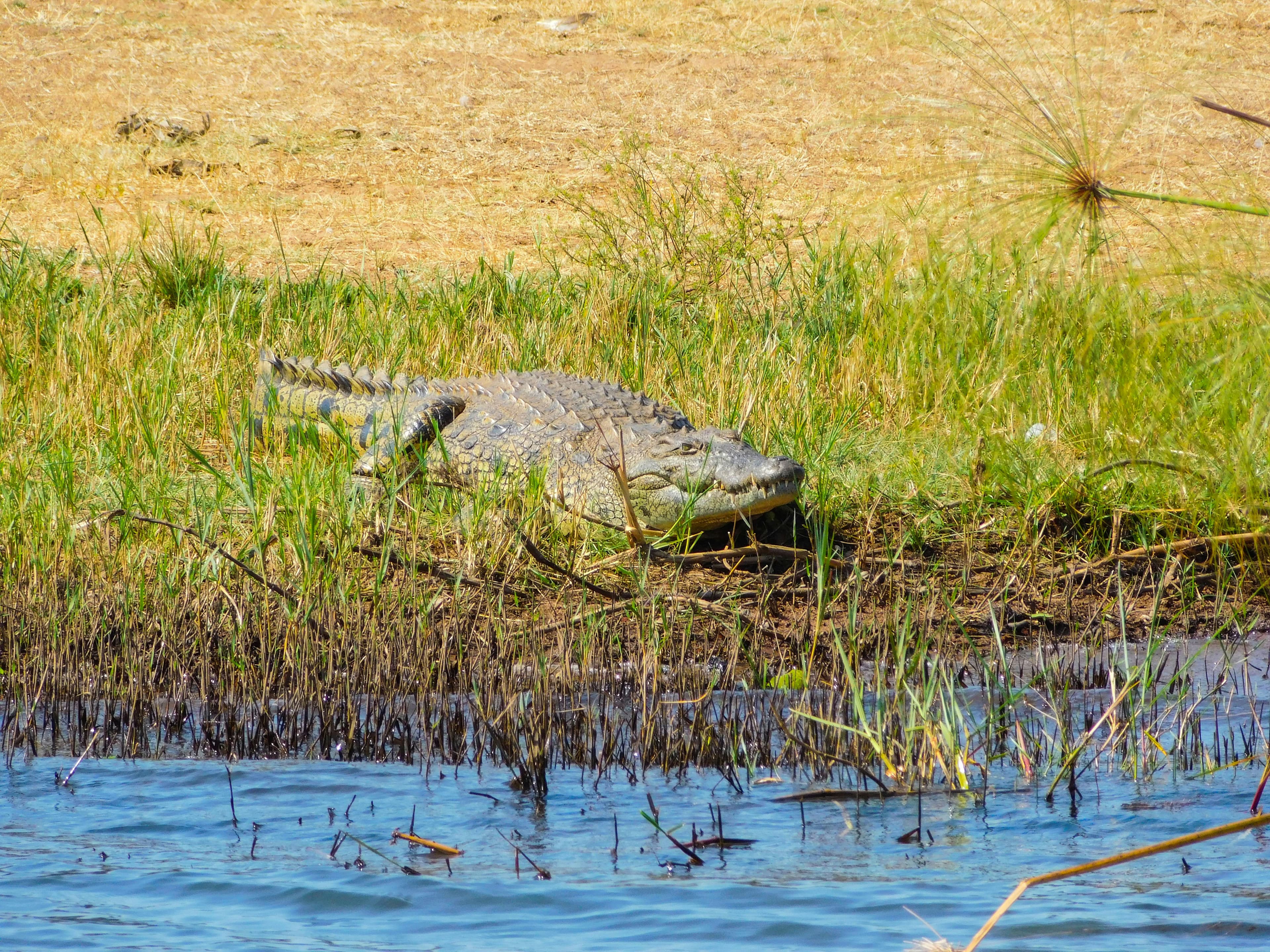
Akagera National Park Safari - 2 Days
Discover Rwanda's only savannah safari destination on this immersive 2-day Akagera National Park experience. Witness Rwanda's remarkable conservation success story - lions reintroduced in 2015 after 1...
Photo Gallery

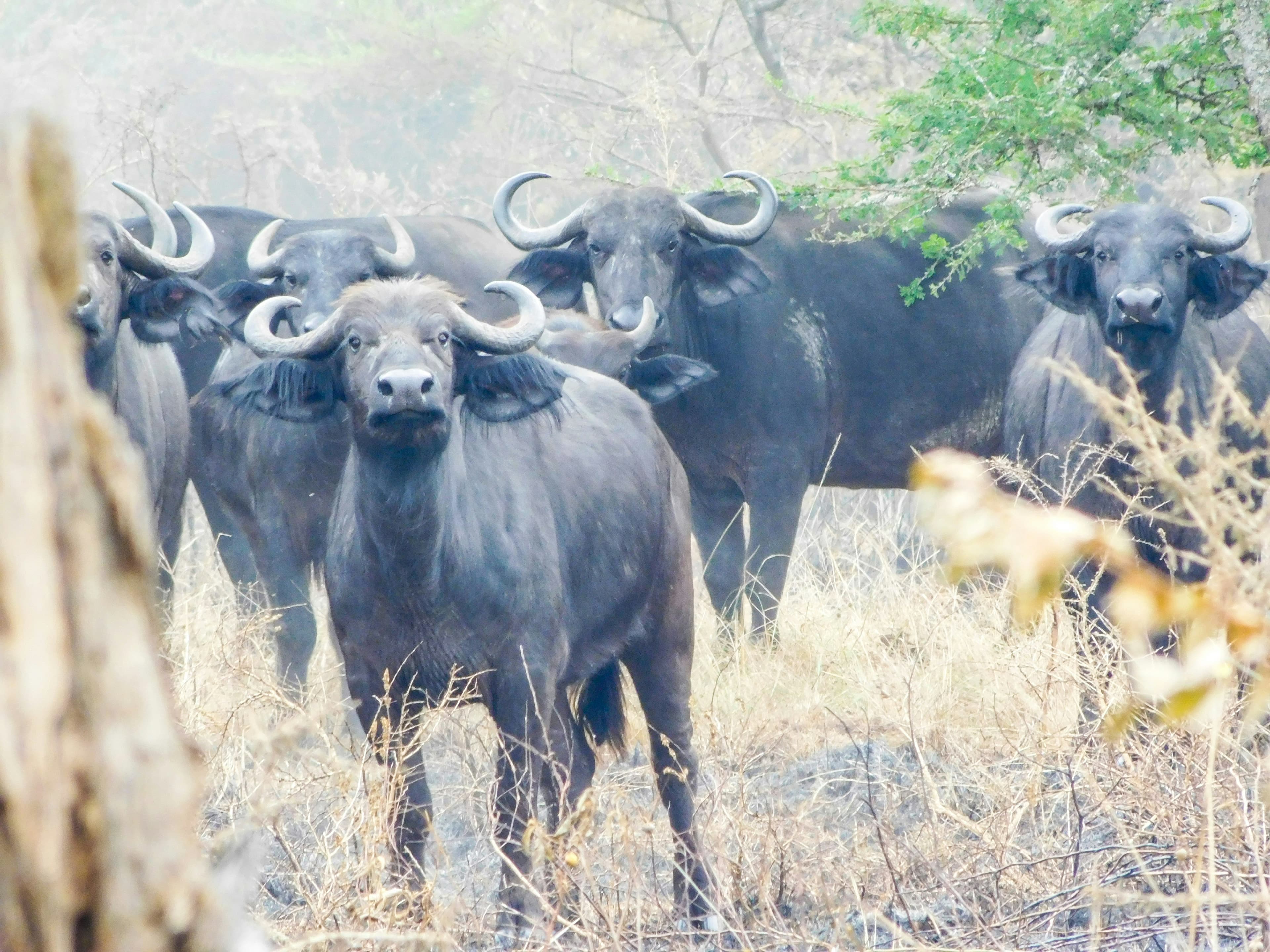
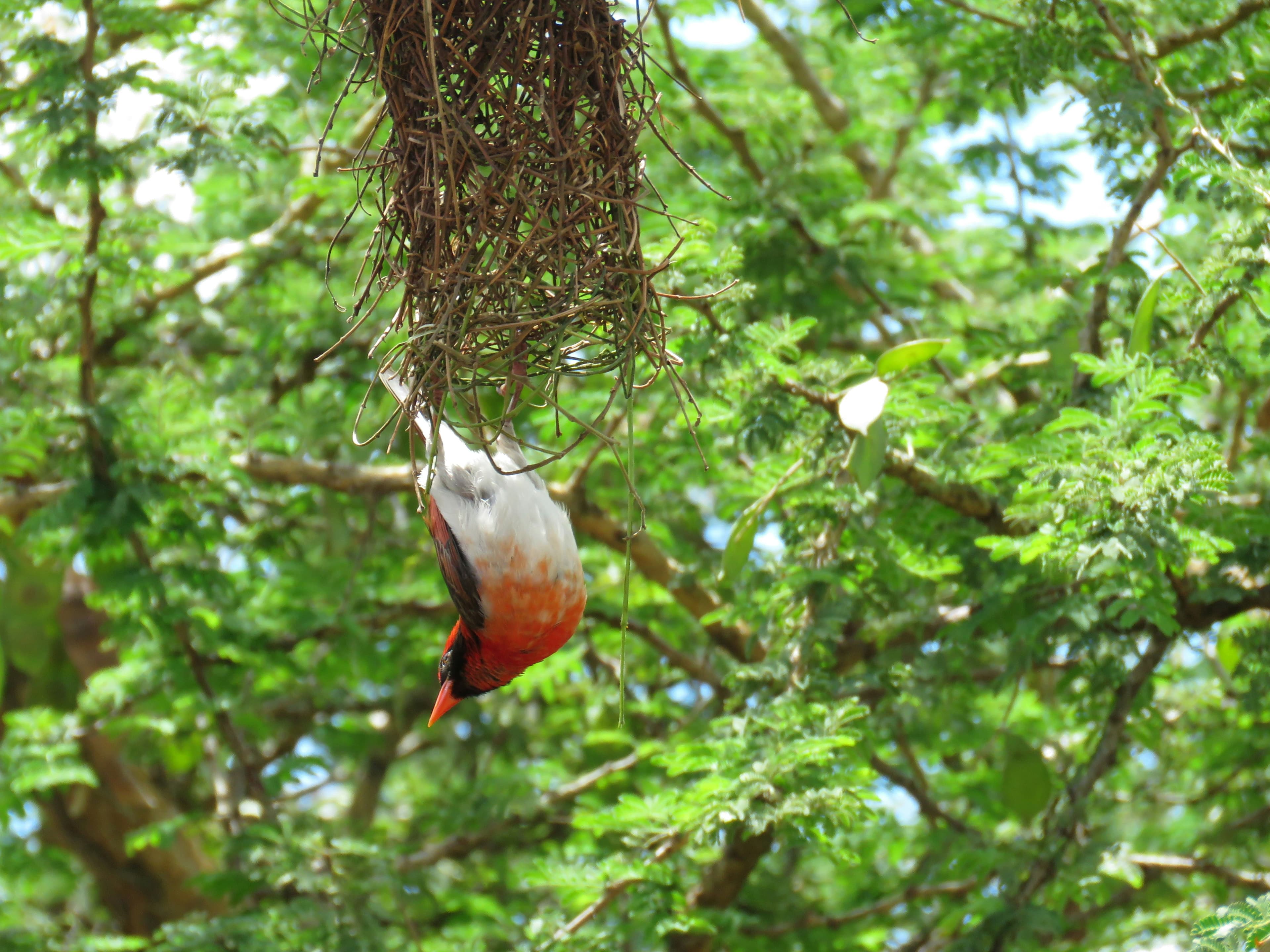
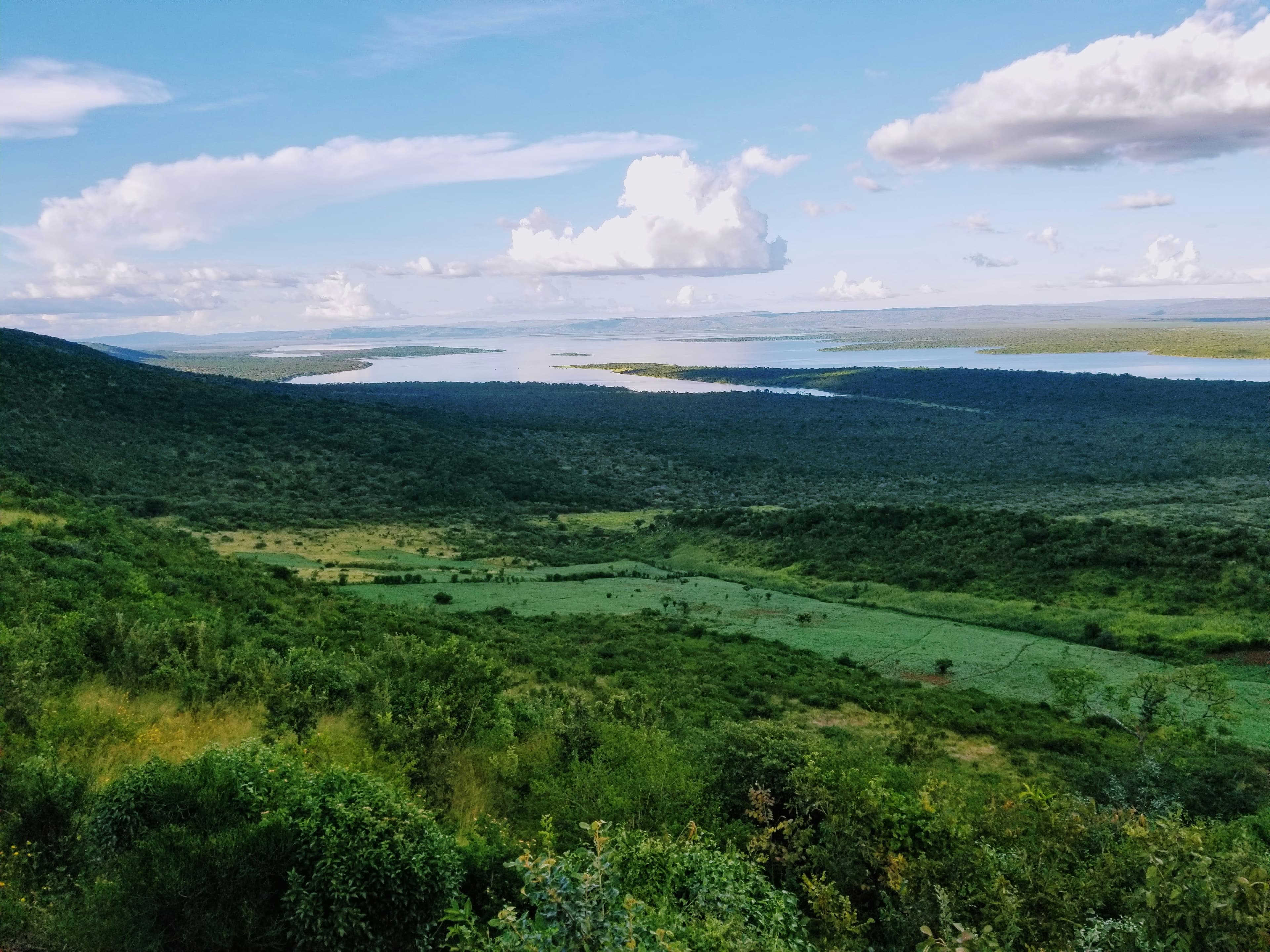
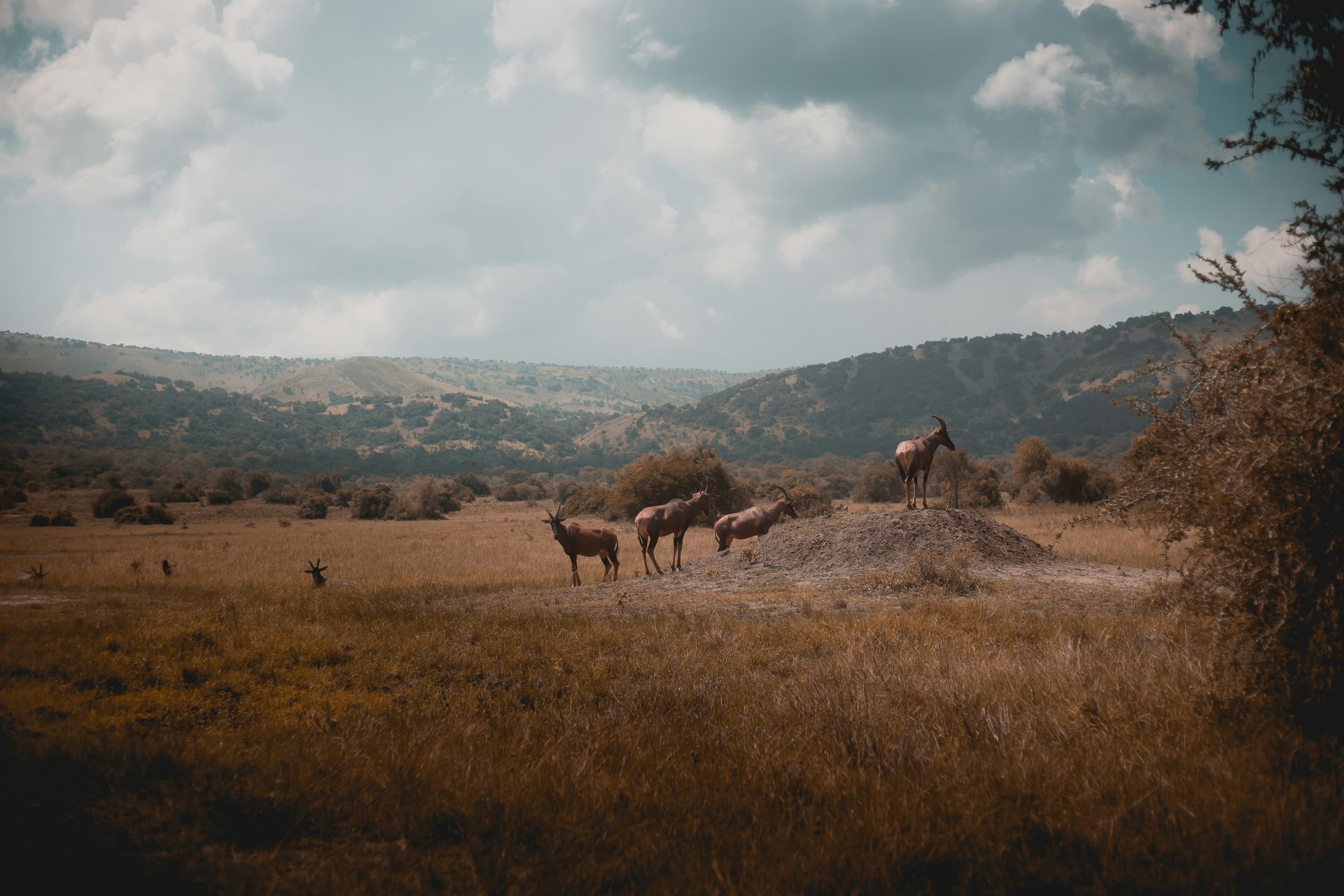
Tour Overview
Discover Rwanda's only savannah safari destination on this immersive 2-day Akagera National Park experience. Witness Rwanda's remarkable conservation success story - lions reintroduced in 2015 after 15-year absence, black rhinos brought back in 2017, completing the Big Five. Enjoy game drives through diverse ecosystems from rolling grasslands to papyrus swamps, boat cruises on Lake Ihema spotting hippos and crocodiles, and stunning scenery along the Tanzanian border. Perfect add-on to gorilla trekking for a comprehensive Rwanda wildlife experience.
2-day Akagera National Park safari in Rwanda. Big Five destination, lions reintroduced 2015, black rhinos 2017. Boat cruise Lake Ihema, conservation success story. Perfect with gorilla trekking. Book now!
Tour Highlights
Day-by-Day Itinerary
1Kigali to Akagera National Park - Conservation Miracle
Depart Kigali at 8:00 AM for the scenic 2.5-hour drive (110km) east to Akagera National Park along Rwanda's paved roads. The journey passes through densely populated countryside with terraced hillsides, small towns, and traditional villages. Akagera's story is remarkable: During Rwanda's 1994 genocide and aftermath, the park was devastated - wildlife poached, land encroached upon, management collapsed. By 2000, lions were locally extinct, elephants reduced to a few dozen. In 2010, African Parks took over management in partnership with Rwanda Development Board, transforming Akagera into a conservation success story. Systematic efforts included: fence construction (preventing human-wildlife conflict), anti-poaching teams, community partnerships, and wildlife reintroductions. In 2015, seven lions were relocated from South Africa - Rwanda's first lions in 15 years! In 2017, 18 endangered eastern black rhinos arrived from South Africa. Today Akagera thrives with increasing wildlife populations and tourism revenue. Arrive at Akagera's southern entrance (around 10:30 AM) and begin game viewing immediately as you drive through the park to your lodge. The park (1,122 sq km) protects diverse habitats: rolling grasslands, acacia woodlands, swamp-fringed lakes, papyrus wetlands, and montane vegetation on the western hills. Unlike Rwanda's volcanic north, Akagera offers classic East African savannah landscapes. Morning game drive en route to your lodge - spot zebras grazing in herds, graceful impalas, topis (chocolate-brown antelope with distinctive horns), warthogs trotting with tails vertical, baboon troops, and hopefully giraffes. Akagera has healthy elephant populations (estimated 100+) and large buffalo herds (thousands). Arrive at Ruzizi Tented Lodge or similar luxury accommodation for check-in and lunch around 1:00 PM. These tented camps offer stunning lake views with hippos visible from your veranda. Relax during midday heat. At 4:00 PM, depart for afternoon/evening game drive - the best time for wildlife viewing as temperatures cool and animals become active. Your guide uses experience and radio communication with other guides to locate key species. Search for the reintroduced lions (currently ~50 in the park, sightings 40-50% probability on 2-day safari) often lounging under acacia trees or hunting. Track leopards (elusive but present), spot hyenas, and observe abundant plains game. Visit Lake Ihema or other wetlands where hippo pods wallow and Nile crocodiles bask. Birdlife is spectacular - over 500 species including the rare prehistoric-looking shoebill stork (best seen in northern swamps, sightings not guaranteed but possible). Sundowner stop at scenic viewpoint watching sunset paint the landscapes gold. Return to lodge for dinner around 7:30 PM. Optional: Book night game drive ($30) to search for nocturnal species like leopards, hyenas, genets, and bush babies.
Lunch, DinnerRuzizi Tented Lodge / Magashi Camp or similar luxury tented camp
Kigali to Akagera National Park - Conservation Miracle
Depart Kigali at 8:00 AM for the scenic 2.5-hour drive (110km) east to Akagera National Park along Rwanda's paved roads. The journey passes through densely populated countryside with terraced hillsides, small towns, and traditional villages. Akagera's story is remarkable: During Rwanda's 1994 genocide and aftermath, the park was devastated - wildlife poached, land encroached upon, management collapsed. By 2000, lions were locally extinct, elephants reduced to a few dozen. In 2010, African Parks took over management in partnership with Rwanda Development Board, transforming Akagera into a conservation success story. Systematic efforts included: fence construction (preventing human-wildlife conflict), anti-poaching teams, community partnerships, and wildlife reintroductions. In 2015, seven lions were relocated from South Africa - Rwanda's first lions in 15 years! In 2017, 18 endangered eastern black rhinos arrived from South Africa. Today Akagera thrives with increasing wildlife populations and tourism revenue. Arrive at Akagera's southern entrance (around 10:30 AM) and begin game viewing immediately as you drive through the park to your lodge. The park (1,122 sq km) protects diverse habitats: rolling grasslands, acacia woodlands, swamp-fringed lakes, papyrus wetlands, and montane vegetation on the western hills. Unlike Rwanda's volcanic north, Akagera offers classic East African savannah landscapes. Morning game drive en route to your lodge - spot zebras grazing in herds, graceful impalas, topis (chocolate-brown antelope with distinctive horns), warthogs trotting with tails vertical, baboon troops, and hopefully giraffes. Akagera has healthy elephant populations (estimated 100+) and large buffalo herds (thousands). Arrive at Ruzizi Tented Lodge or similar luxury accommodation for check-in and lunch around 1:00 PM. These tented camps offer stunning lake views with hippos visible from your veranda. Relax during midday heat. At 4:00 PM, depart for afternoon/evening game drive - the best time for wildlife viewing as temperatures cool and animals become active. Your guide uses experience and radio communication with other guides to locate key species. Search for the reintroduced lions (currently ~50 in the park, sightings 40-50% probability on 2-day safari) often lounging under acacia trees or hunting. Track leopards (elusive but present), spot hyenas, and observe abundant plains game. Visit Lake Ihema or other wetlands where hippo pods wallow and Nile crocodiles bask. Birdlife is spectacular - over 500 species including the rare prehistoric-looking shoebill stork (best seen in northern swamps, sightings not guaranteed but possible). Sundowner stop at scenic viewpoint watching sunset paint the landscapes gold. Return to lodge for dinner around 7:30 PM. Optional: Book night game drive ($30) to search for nocturnal species like leopards, hyenas, genets, and bush babies.
2Full Day Akagera - Boat Safari & Game Drives, Return to Kigali
Wake early (5:30 AM) for sunrise game drive (6:00 AM - 9:00 AM) - the best wildlife viewing period when predators are still active from night hunting and herbivores graze in cool morning air. The golden morning light is spectacular for photography. Search areas not covered yesterday, targeting specific species. Your guide knows lion territories, leopard hangouts, and where elephants frequent. Akagera's northern section offers more remote wilderness with fewer visitors. Breakfast boxes allow extended morning drive, or return to lodge for full breakfast around 9:00 AM. Mid-morning (10:00 AM), depart for the highlight: boat cruise on Lake Ihema, Rwanda's second-largest lake. The 1.5-2 hour boat safari provides a completely different perspective - gliding silently across calm waters surrounded by wildlife. Lake Ihema hosts massive hippo populations (100+) - you'll see multiple pods with only eyes and ears visible above water, occasionally yawning to display enormous teeth. Giant Nile crocodiles (some 4+ meters) sunbathe on banks and islands. The lakeshore attracts elephants, buffaloes, and various antelope coming to drink - incredible to see from water. Birdlife is prolific: African fish eagles perched in trees calling with distinctive cry, kingfishers diving for fish, cormorants spreading wings to dry, herons stalking shallows, storks, pelicans, Egyptian geese, and papyrus-dwelling species. The boat passes scenic bays and inlets with papyrus walls. Your guide identifies species and shares Akagera's conservation stories. After the boat cruise (around noon), enjoy lunch at the picnic site or return to lodge. Optional: Take a behind-the-scenes conservation tour ($40) visiting the park's headquarters, meeting rangers, learning about anti-poaching efforts, rhino monitoring, and community programs. Early afternoon (1:00-2:00 PM), begin the return drive to Kigali with final game viewing en route to the park exit. The journey back (2.5 hours) allows reflection on Akagera's incredible transformation. Arrive in Kigali by late afternoon (4:30-5:00 PM) for drop-off at your hotel or airport. Your 2-day Akagera safari concludes, showcasing Rwanda as more than "land of gorillas" - it's also a Big Five destination with remarkable conservation success. Extension options: Combine with 3-day Volcanoes gorilla trekking (total 5-6 days for comprehensive Rwanda experience), add Lake Kivu beach relaxation, or extend to Uganda/Tanzania for multi-country East Africa safari.
Breakfast, LunchNone (end of tour) or Kigali hotel
Full Day Akagera - Boat Safari & Game Drives, Return to Kigali
Wake early (5:30 AM) for sunrise game drive (6:00 AM - 9:00 AM) - the best wildlife viewing period when predators are still active from night hunting and herbivores graze in cool morning air. The golden morning light is spectacular for photography. Search areas not covered yesterday, targeting specific species. Your guide knows lion territories, leopard hangouts, and where elephants frequent. Akagera's northern section offers more remote wilderness with fewer visitors. Breakfast boxes allow extended morning drive, or return to lodge for full breakfast around 9:00 AM. Mid-morning (10:00 AM), depart for the highlight: boat cruise on Lake Ihema, Rwanda's second-largest lake. The 1.5-2 hour boat safari provides a completely different perspective - gliding silently across calm waters surrounded by wildlife. Lake Ihema hosts massive hippo populations (100+) - you'll see multiple pods with only eyes and ears visible above water, occasionally yawning to display enormous teeth. Giant Nile crocodiles (some 4+ meters) sunbathe on banks and islands. The lakeshore attracts elephants, buffaloes, and various antelope coming to drink - incredible to see from water. Birdlife is prolific: African fish eagles perched in trees calling with distinctive cry, kingfishers diving for fish, cormorants spreading wings to dry, herons stalking shallows, storks, pelicans, Egyptian geese, and papyrus-dwelling species. The boat passes scenic bays and inlets with papyrus walls. Your guide identifies species and shares Akagera's conservation stories. After the boat cruise (around noon), enjoy lunch at the picnic site or return to lodge. Optional: Take a behind-the-scenes conservation tour ($40) visiting the park's headquarters, meeting rangers, learning about anti-poaching efforts, rhino monitoring, and community programs. Early afternoon (1:00-2:00 PM), begin the return drive to Kigali with final game viewing en route to the park exit. The journey back (2.5 hours) allows reflection on Akagera's incredible transformation. Arrive in Kigali by late afternoon (4:30-5:00 PM) for drop-off at your hotel or airport. Your 2-day Akagera safari concludes, showcasing Rwanda as more than "land of gorillas" - it's also a Big Five destination with remarkable conservation success. Extension options: Combine with 3-day Volcanoes gorilla trekking (total 5-6 days for comprehensive Rwanda experience), add Lake Kivu beach relaxation, or extend to Uganda/Tanzania for multi-country East Africa safari.
What's Included & Excluded
Included in Price
- Akagera National Park entrance fees
- Professional safari guide
- Transport in 4×4 safari vehicle with pop-up roof
- 1 night luxury tented camp/lodge in Akagera
- All meals (full board)
- Game drives (afternoon Day 1, morning & afternoon Day 2)
- Boat cruise on Lake Ihema
- Bottled water during activities
- Kigali hotel/airport pickup and drop-off
- Government taxes
Not Included
- International flights
- Rwanda visa ($50) or East Africa Tourist Visa ($100)
- Travel insurance
- Alcoholic beverages and sodas
- Optional night game drive ($30 per person)
- Optional behind-the-scenes conservation tour ($40)
- Tips for guide and lodge staff ($15-20 per day)
- Personal expenses
- Laundry services
Tour Requirements
- Valid passport with 6+ months validity
- Rwanda visa ($50) or East Africa Tourist Visa ($100)
- Yellow fever vaccination certificate (mandatory)
- Travel insurance
- Malaria prophylaxis recommended (Akagera is low-altitude, malaria risk)
- Sun protection (hat, sunglasses, SPF 50+ sunscreen)
- Binoculars for wildlife and bird watching
- Camera with telephoto lens (200-400mm) for wildlife
- Neutral-colored clothing
- Insect repellent for mosquitoes
Frequently Asked Questions
Commonly asked questions about this tour
Can I really see the Big Five in Akagera National Park?
Yes! Akagera became Rwanda's first and only Big Five park after successful reintroductions of lions (2015) and black rhinos (2017). CURRENT STATUS: LIONS - ~50 individuals from original 7 reintroduced, breeding successfully, sightings 40-50% on 2-day safari. ELEPHANTS - 100+ population and growing, commonly seen. BUFFALOES - thousands, almost guaranteed sightings. LEOPARDS - present but elusive (nocturnal), 20-30% sighting probability, night drives improve odds. BLACK RHINOS - ~20 individuals from 18 reintroduced, very rare sightings (under 10% probability) as they're shy and park is large. Seeing all Big Five in 2 days is unlikely (leopards and rhinos challenging), but seeing 3-4 of Big Five is realistic. Regardless, Akagera offers excellent wildlife diversity making it worthwhile.
How does Akagera compare to Kenya/Tanzania safari parks?
Akagera is SMALLER and less wildlife-dense than Tanzania's Serengeti or Kenya's Maasai Mara - you won't see massive herds of wildebeest/zebras or constant predator action. However, Akagera offers: CONSERVATION STORY - witnessing Africa's most successful park recovery is inspiring. LESS CROWDED - fewer tourists means intimate sightings without vehicle congestion. DIVERSE ECOSYSTEMS - combination of savannah, lakes, wetlands, and montane areas. BIRDLIFE - 500+ species rival anywhere in East Africa. ACCESSIBILITY - only 2.5 hours from Kigali (vs long drives to Tanzania/Kenya parks). COMBO WITH GORILLAS - unique opportunity to combine mountain gorillas + Big Five in one country (5-6 days total). Best approach: View Akagera as an excellent ADD-ON to gorilla trekking rather than standalone destination. If your primary goal is classic safari with huge herds, choose Tanzania/Kenya. For comprehensive Rwanda experience, Akagera is perfect.
Is 2 days enough in Akagera or should I stay longer?
TWO DAYS is the most popular option providing good wildlife viewing, boat cruise, and multiple game drives while keeping costs reasonable. You'll see healthy cross-section of Akagera's wildlife and ecosystems. THREE DAYS improves chances of seeing lions, leopards, allows exploration of remote northern section, includes more optional activities (night drives, behind-the-scenes tours, fishing), and offers relaxed pace without rushing. RECOMMENDATION: 2 days works well for most visitors, especially those combining with gorilla trekking (total 5-6 day Rwanda trip). Wildlife photographers or serious birders benefit from 3 days. Budget-conscious travelers can do 1-day trip from Kigali (day trip, no accommodation), but this misses early morning and evening prime game viewing times plus boat cruise constraints. Quality beats rushing - 2 full days feels complete.
What is the best time of year to visit Akagera?
DRY SEASONS (Best): JUNE-SEPTEMBER and DECEMBER-FEBRUARY offer easier wildlife viewing (animals concentrate around water sources), drier roads (better vehicle access), less vegetation (clearer sightings), and comfortable weather. Peak season prices apply. WET SEASONS: MARCH-MAY (long rains) and OCTOBER-NOVEMBER (short rains) bring muddy roads (4×4 essential, some tracks impassable), dense vegetation (animals harder to spot), but also ADVANTAGES - lush green scenery, migratory birds present (birding peak), dramatic storm clouds for photography, fewer tourists, discounted accommodation, baby animals (many species give birth during rains). Akagera is accessible year-round - wildlife viewing never stops. If your dates coincide with wet season, don't avoid it - different but still rewarding experience. Book 2-3 months ahead for dry season, less advance for wet season.
Can I see the shoebill stork in Akagera?
Akagera hosts shoebill storks - one of Africa's most sought-after birds due to prehistoric appearance (massive bill, 1.2m tall, gray plumage). However, sightings are NOT guaranteed as shoebills are rare, shy, and inhabit specific papyrus swamps in Akagera's remote northern section (Akagera North). PROBABILITY: 20-30% on 2-day safari, 40-50% on 3-day safari with dedicated birding focus. BEST CHANCES: Early morning boat cruises in northern lakes (Lake Rwanyakazinga), hiring specialized birding guide, visiting during wet season when water levels favor shoebill habitat. If shoebills are your #1 priority, consider Uganda's Mabamba Swamp (90%+ shoebill sightings) or extending Akagera visit to 3 days with birding emphasis. Even without shoebills, Akagera's 500+ bird species include numerous rarities keeping birders thrilled.
Is Akagera safe? What about safety after the genocide?
YES, Akagera is completely safe for tourists. The park has been secure and well-managed since African Parks took over in 2010. Modern infrastructure includes: perimeter fence (preventing human-wildlife conflict and poaching), professional armed ranger teams, regular patrols, visitor protocols. The 1994 genocide and civil war devastated Akagera but that's 30+ years past - today the park showcases Rwanda's stability and progress. SAFETY MEASURES: Stay in vehicle during game drives (except designated areas), follow guide instructions, keep windows closed when approaching dangerous animals, no walking without ranger escort. The lodge/camps are safe with staff security. Rwanda overall is one of Africa's safest countries with low crime. The genocide Memorial visit in Kigali provides important context, but present-day Rwanda is peaceful, organized, and tourism-friendly. Feel comfortable visiting.
Can I combine Akagera safari with gorilla trekking?
Absolutely - this is the MOST POPULAR Rwanda itinerary combining the country's two flagship experiences: RECOMMENDED ITINERARY (5-6 days): Day 1 - Arrive Kigali, city tour, drive to Volcanoes NP (2 hours north). Day 2 - Gorilla trekking in Volcanoes NP. Day 3 - Optional golden monkey trek OR drive to Akagera (4 hours east via Kigali). Day 4 - Full day Akagera safari with boat cruise. Day 5 - Morning game drive, return to Kigali, departure. This combination offers incredible diversity: mountain gorillas, Big Five, volcanoes, savannah, lakes, primates, and birds - showcasing Rwanda's compact size and varied ecosystems. Alternatively, do Akagera first (easier acclimatization) then Volcanoes (more strenuous). Budget 5-6 days minimum. Many travelers rate this as their best African trip - gorillas are life-changing, Akagera adds classic safari element most visitors expect from Africa.
What accommodation options exist in Akagera?
Akagera offers range of accommodations: LUXURY: Magashi Camp (ultra-luxury $800+/night, only 6 tents, stunning lake views, exceptional service, all-inclusive) - Africa's top safari camp standard. Ruzizi Tented Lodge ($250-350/night, comfortable tented rooms on stilts over Lake Ihema, excellent mid-range luxury). Karenge Bush Camp ($150-250/night, intimate camp in remote location). MID-RANGE: Akagera Game Lodge ($100-150/night, historic lodge, lake views, affordable comfort). BUDGET: Public campsites ($30/person, bring own camping gear) at designated sites like Shakani, Muyumba, basic facilities. RECOMMENDATION: Ruzizi Tented Lodge or Akagera Game Lodge balance comfort, location, and value. Budget campers save significantly but need self-sufficiency. Luxury Magashi worth splurge for honeymoons/special occasions. Book accommodations when reserving park permits.
Book This Tour
Best Time to Visit
Need Help?
Contact us for customizations, group bookings, or special requests.